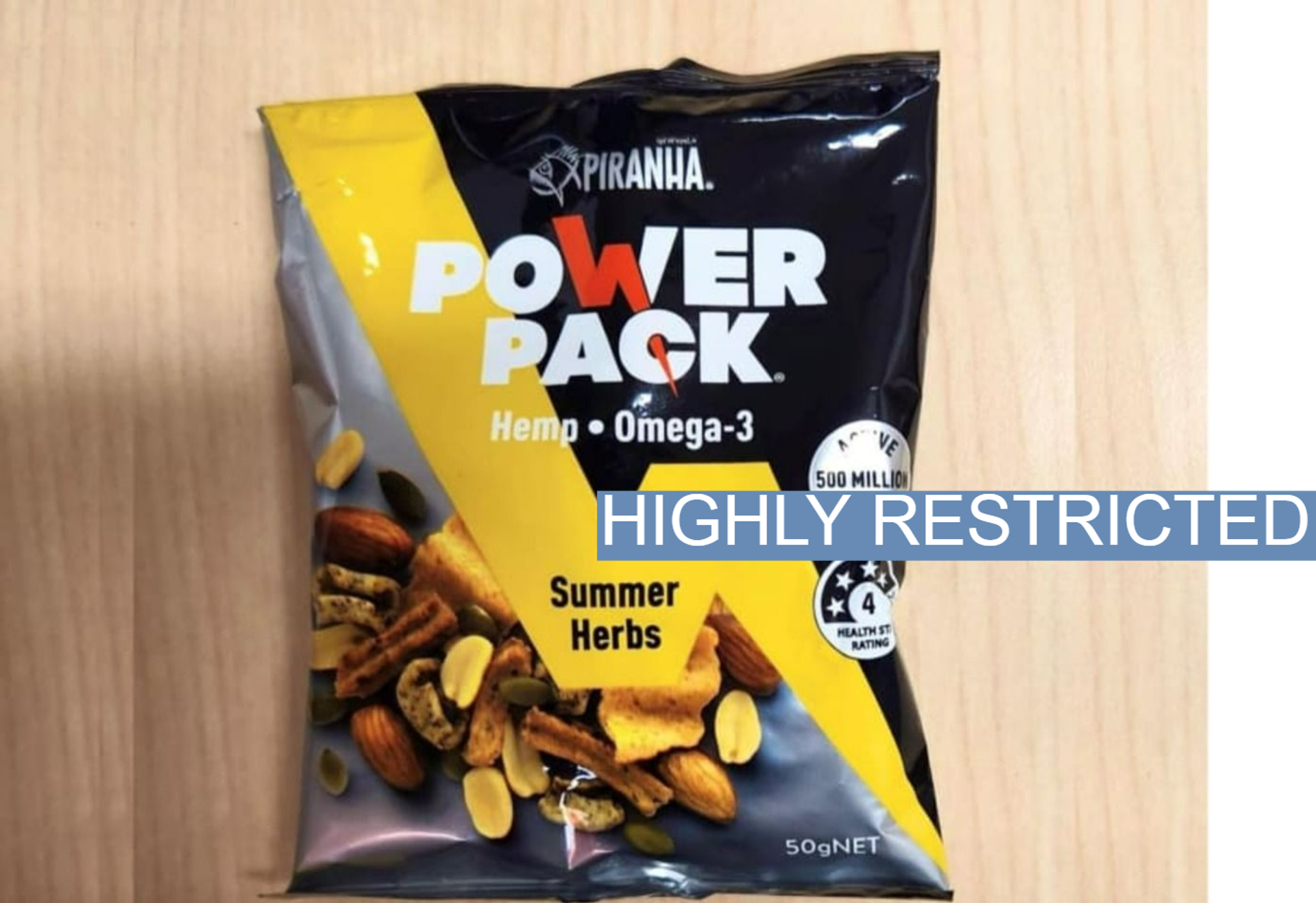The News
Have the munchies? If you’re in Singapore, don’t expect to crunch on Piranha’s “Power Pack” snack mix anytime soon.
On Friday, the country’s Central Narcotics Bureau announced they were pulling the Australian company’s nut and cracker snack from vending machines because of one ingredient: hemp.
“Did you know that Cannabis Sativa is the botanical name for the hemp plant? You read that right: hemp is cannabis,” the agency posted on its Facebook page.

In this article:
Know More
The CNB said the snack is in violation of Singapore’s strict drug laws as hemp contains tetrahydrocannabinol (THC), the psychoactive component of cannabis, although levels are significantly lower in hemp compared to typical cannabis plants and cannot get consumers high when ingested.
“There have been numerous reports of adverse health impacts linked to [THC’s] use,” continued the agency’s statement. “Hence, CNB would like to remind importers, retailers and members of the public that any product containing hemp derivatives should not be imported, supplied or put on sale.”
Singaporean authorities said those who have purchased the snack should immediately dispose of it. Piranha declined to comment on the Singapore situation, pending CNB’s ongoing investigation, but the company said that the snack mix met Australian and New Zealand food law requirements.
Step Back
Singapore has some of the world’s strictest drug laws including the death penalty for those caught carrying more than 15g of heroin.
Last year the island state executed 11 prisoners for drug offenses, the latest of which took place in October.
The case of Malaysian national Nagaenthran K. Dharmalingam, who was hanged in April 2022, sparked a wave of protest and debate within Singapore as young nationals spoke out against the death penalty.
The View From Thailand
Thailand became the first country in Asia to fully decriminalize cannabis use in 2022, although the regulations are still more robust than other places like the Netherlands.
The country’s liberal stance on marijuana is in stark contrast to neighboring Southeast Asian countries where, like Singapore, simple drug procession can carry hefty fines or prison sentences.
Part of the decriminalization efforts is to turn cannabis into a cash crop: in May 2022, the Thai government handed out 1 million cannabis seedlings to households, about a third of which work for the country’s agriculture sector.